November 16th, 2020:
People less likely to report abuse if happening to themselves than to others
Almost a quarter of people (23%) would not know who to report adult abuse to if they or someone they knew was a victim – according to new research commissioned by Safeguarding Ireland.
Just 70% said they would report abuse if it occurred to them personally, while a higher 92% said they would encourage or help others to report abusehappening to them.
The findings were launched today as part of public awareness drive, to improve reporting of adult abuse, led by Safeguarding Ireland.
The research was carried out by RED C on a representative sample of 1,000 adults nationwide.
Safeguarding Ireland Chairperson Patricia Rickard-Clarke said abuse of all types – psychological, physical, online, financial, or neglect or coercion need to be called out and reported.
She said to protect all adults, particularly those who are vulnerable, improved clarity is needed on how and where to report concerns of abuse or neglect.
“There are different public bodies that safeguarding concerns should be reported to, depending on the issue, and this can cause confusion.
“If an abuse concern is urgent, and someone is in immediate danger, it should be brought to the Gardai. The HSE Safeguarding and Protection Teams can be contacted directly about older persons, and persons with a disability in the community, who are at risk of abuse by another person. Where individuals are in receipt of a health or social care service they can speak to the service provider or their manager about any safeguarding concerns.
“Concerns about financial abuse should be raised with the relevant bank’s vulnerable customer service, a welfare concern should be raised with the Department of Social Protection and concern about an organisation or service in the health or social sector with HIQA,” she said.
To provide better clarity, information on how to report and who to report to has been added to the Safeguarding Ireland website at www.safeguardingireland.org.
The HSE National Safeguarding Office Annual Report, announced last week, reported 12,000 abuse concern cases in 2019. However, Ms. Rickard-Clarke said in recent RED C research 12% of Irish adults said they had experienced abuse since the start of COVID-19, and as many as one third reported ever experiencing abuse.
“We know that the actual level of abuse is much higher than that which presents specifically to the HSE Safeguarding and Protection Teams. To get a comprehensive picture, safeguarding data would need to also be collated from the Gardaí, the banks and the Department of Social Protection.
“To achieve stronger reporting from the public, and more comprehensive data, overarching national structures for safeguarding need to be planned for. Furthermore, stronger safeguarding laws which are in development need to be delivered with urgency,” she said.
More information, including a dedicated page on reporting, can be viewed at www.safeguardingireland.org. Safeguarding means living safely, free from abuse or neglect. It means our choices, particularly if we are vulnerable, are clearly heard and respected.
Further Information
Ronan Cavanagh, Safeguarding Ireland / Cavanagh Communications: (086) 317 9731.
Safeguarding Ireland
Safeguarding Ireland promotes safeguarding of vulnerable adults to protect them from was all forms of abuse by persons, organisations and institutions and to develop a national plan for promoting their welfare.


